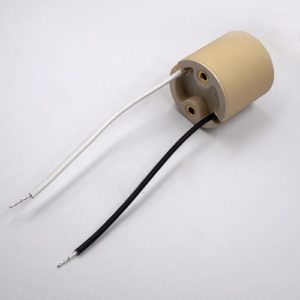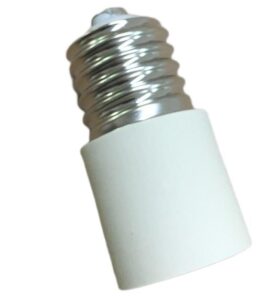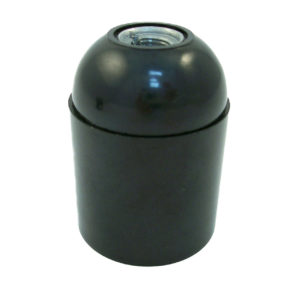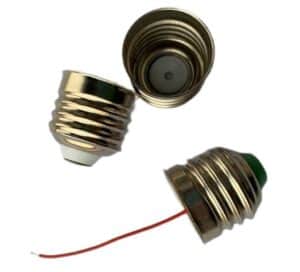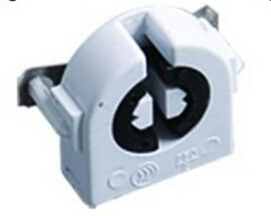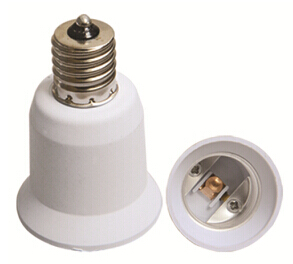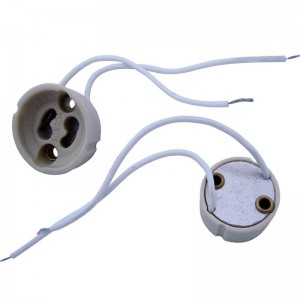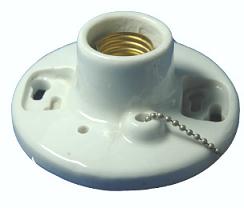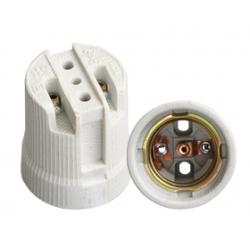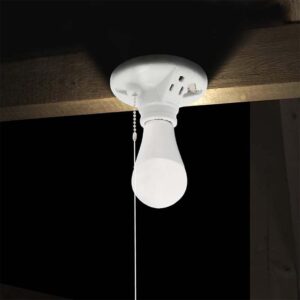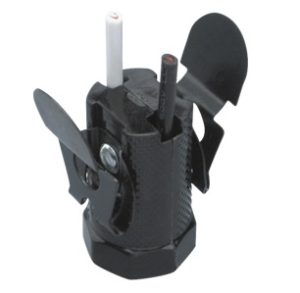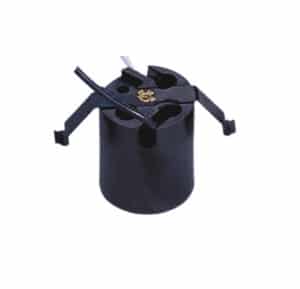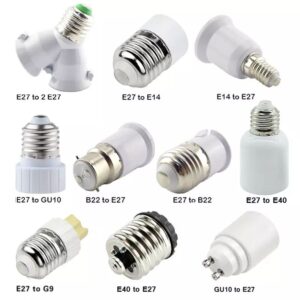Selecting the right plastic for electrical socket outlets is critical to ensure safety and proper function. Using the wrong material can lead to overheating and possible hazards. We will go over the types of plastics used for electrical sockets.
Plastic light sockets are made from heat-resistant, durable materials such as thermosetting plastics (e.g., Bakelite) that can handle high temperatures and prevent electrical accidents.
To pick the right one, you need to know about the different materials used to make them.
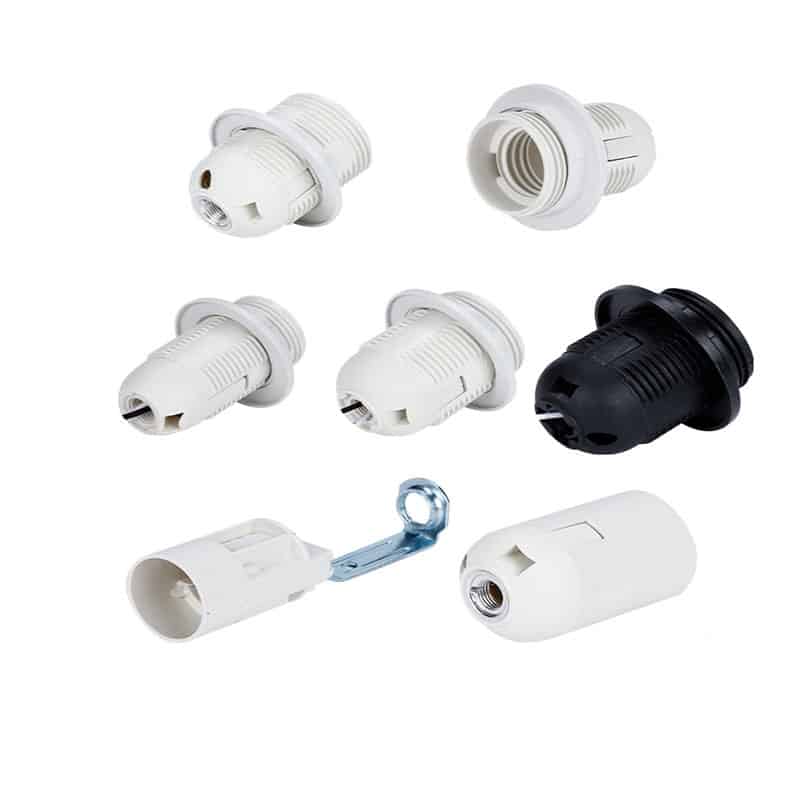
What are plastic light sockets?
Plastic light sockets are electrical components made from non-conductive, heat-resistant plastics that hold and support light bulbs while providing a safe electrical connection. These sockets are widely used in residential, commercial, and industrial settings due to their affordability and ease of installation.
Plastic light sockets are typically made from thermosetting plastics, which can endure high heat and prevent electrical currents from passing through the material. Common plastics used include PVC (Polyvinyl Chloride) and thermoset polymers such as phenolic resins, which are often chosen for their insulating properties. These plastics are ideal for light sockets as they can withstand the heat generated by the light bulb without deforming or melting, making them a popular choice in modern lighting systems.
What is the difference between plastic and Bakelite sockets?
The primary difference between plastic and Bakelite sockets lies in the materials’ heat resistance and durability. Regular plastic sockets are typically made from modern thermoplastic materials like PVC, which can handle moderate heat but may deform if exposed to extreme temperatures over time. These sockets are more flexible and are often used in lower-cost or less demanding electrical applications.
Bakelite, on the other hand, is a thermosetting plastic, meaning it hardens into a permanent, rigid structure when heated. This property makes Bakelite more heat-resistant and durable than regular plastics.
Bakelite sockets are known for their excellent insulating properties and resistance to high temperatures, making them ideal for use in environments where electrical components need to withstand intense heat or potential overloads. While both plastic and Bakelite sockets serve similar functions, Bakelite is generally preferred for heavy-duty electrical applications due to its superior heat resistance and long-lasting durability.
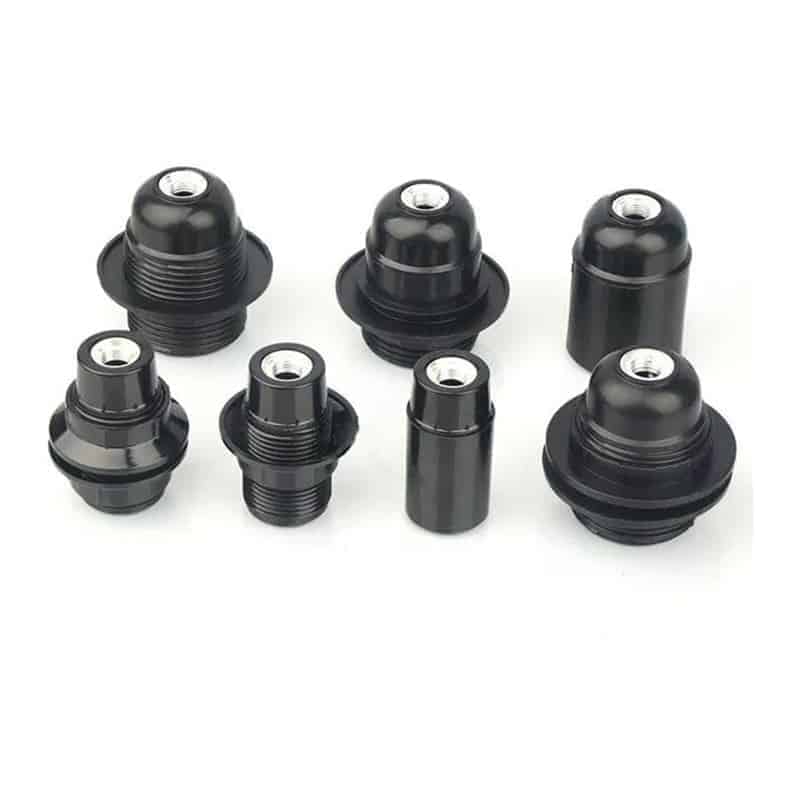
What is Bakelite used for?
Bakelite is a type of thermosetting plastic widely used in electrical applications because of its excellent insulating properties and resistance to heat. It was one of the first plastics ever created and became popular for making various electrical components, including sockets, switches, and plugs.
In addition to electrical fittings, Bakelite has been used in the production of early telephones, radios, kitchenware, and even jewelry. Its non-conductive and heat-resistant qualities made it a go-to material for products that required safety and durability under high temperatures. Today, Bakelite is still valued in the production of electrical components where a tough, non-conductive material is needed.
Is Bakelite a strong plastic?
Yes, Bakelite is considered a strong plastic due to its thermosetting nature, which gives it rigidity and durability once it is molded. When heated and set into shape, Bakelite becomes hard and retains its form even under stress. This makes it highly resistant to deformation, cracking, or wear, especially in electrical environments.
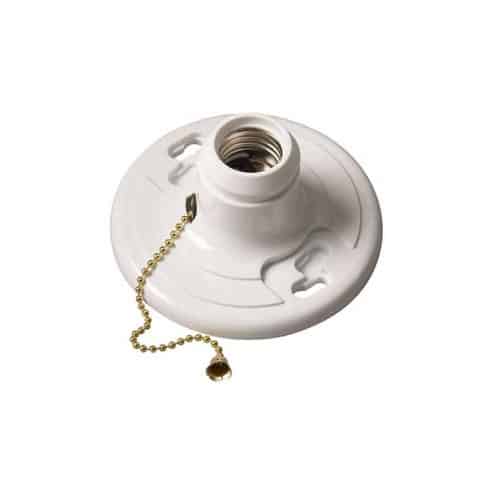
Bakelite’s strength comes from its molecular structure, which forms strong, cross-linked bonds during the manufacturing process. These bonds make it less flexible but more robust compared to other plastics like thermoplastics, which can soften and reshape when reheated. As a result, Bakelite is commonly used in heavy-duty applications where strength and heat resistance are crucial, such as in electric sockets, switches, and industrial components.
Is Bakelite hard or soft?
Bakelite is a hard plastic. Once molded and set, it becomes extremely rigid and retains its shape permanently. Unlike thermoplastics, which can soften and become flexible when reheated, Bakelite does not melt or soften again once it is cured.
This hardness is one of Bakelite’s key advantages, making it ideal for use in environments where components are subject to heat or mechanical stress. However, while it is very hard, Bakelite is also brittle, meaning it can crack or break under significant impact, even though it does not deform easily.
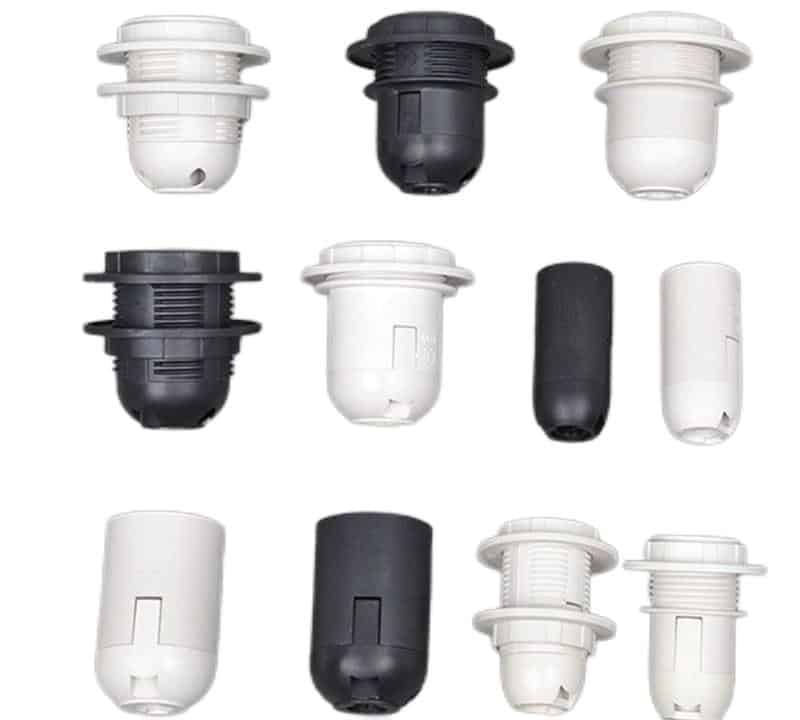
Is Bakelite weak?
Despite its hardness and resistance to heat, Bakelite is not weak, but it does have limitations due to its brittleness. Bakelite is strong in terms of its ability to withstand high temperatures and resist electrical currents, but it is prone to cracking or breaking under mechanical stress.
In electrical applications, Bakelite’s strength lies in its ability to serve as an insulator, protecting electrical connections from heat and preventing short circuits. However, its brittleness means it is not well-suited to applications where it may be subject to physical impact or bending, as it can crack or shatter under excessive force.
Is Bakelite fragile?
Yes, Bakelite is considered fragile compared to modern thermoplastics. While it is strong in terms of heat resistance and rigidity, Bakelite lacks flexibility, which makes it prone to cracking or breaking when subjected to mechanical force or shock.
This fragility is why Bakelite sockets and electrical components must be handled with care. They perform exceptionally well in stationary applications where they are not subjected to physical stress but can break if dropped or hit. Despite its fragility, Bakelite remains highly valued for its superior heat resistance and insulating properties in electrical systems.
Conclusion: Bakelite is a good choice for making electrical sockets. You have to be careful with Bakelite because it is brittle.

